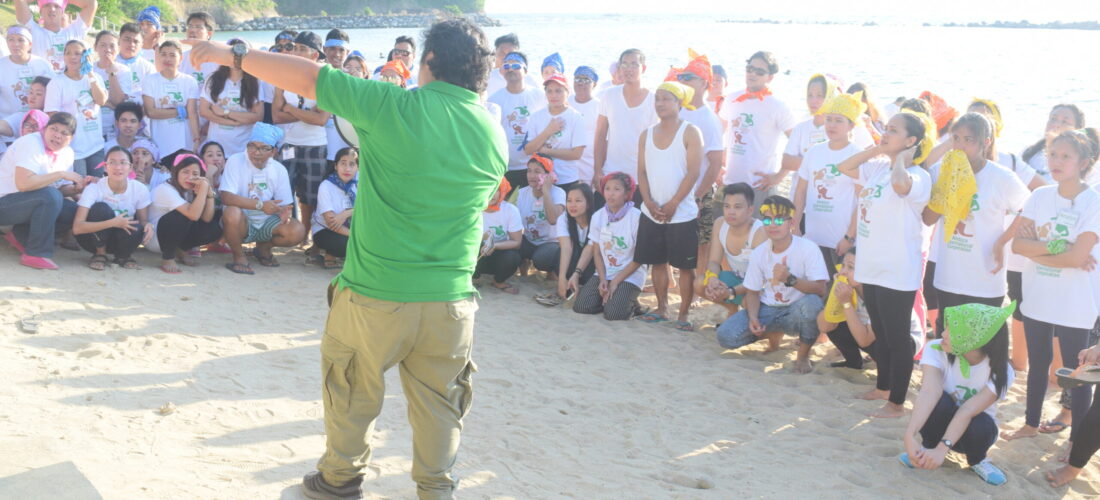
More than its well established brand, the success of a team in achieving its full potential is dependent on its ability to work effectively as a team.
In a bestselling book called The Five Dysfunctions of a Team, author and Organization Development Consultant Patrick Lencioni wrote: “Not finance, not strategy, not technology. It is teamwork that remains the ultimate competitive advantage both because it is so powerful and so rare.” It has been said that if a company can get all its employees rowing towards one direction, there is no reason why that company can’t reach its rightful destination.
Rowing towards one direction however, is close to impossible because teams are made up of people who are imperfect, fallible and teams are inherently dysfunctional. In many organizations, politics and confusion are more the rule rather than the exception. Fortunately for us, the dysfunctions that hinder teams from working effectively together have been identified and found to be curable. Lencioni recommends that the following team fundamentals be pursued to help the team succeed:
Fundamental #1: Build Trust Highly effective teams work in an environment where trust is strong. It happens when expectations are clear, communications are unhampered and the environment encourages expression of ideas, opinions and feelings.
Fundamental #2: Mastering Conflicts In teams where expression of ideas is encouraged, conflict or contrasting opinions are likely to happen. Establishing norms that allow people to communicate honestly and yet respectfully creates an environment where problems are easily identified and solutions are presented without any damage to relationships.
Fundamental #3: Strengthen Commitment The team members need to understand that they are team number 1. That any failure to commit at their level will have costly impact on the whole organization. Two factors are important in establishing strong commitment; buyin and clarity. Buy in is the ability to RESPECT and align with a decision whether or not you agree with it initially. Achieving clarity reflects on a manager’s ability to manifest behaviors that align with team decisions.
Fundamental #4: Build Accountability Successful teams have DISCIPLINE. They do not allow mediocrity to creep in to the organization. Individuals in the team ensures that everyone is doing his/her utmost for the team by keeping their promises, giving support and calling people’s attention when they demonstrate behaviors that are counter productive to team.
Fundamental #5: Focus on Results A strong team is able to set a goal for the whole organization and then rally the whole team towards achieving it. They feel the agony of defeat and celebrate success with much gusto. Because team members are accountable, committed, demonstrate open communication and trust the team to do its best. They are able to harness the team’s full ability to deliver the goods.
Lencioni shared some formula for building these fundamentals. ExeQserve consultants studied the formula and successfully applied them to a number of companies who now enjoy stronger trust, productive collaboration, commitment, accountability and focus on results. The formula is not a training session but an intervention to help members of a team work more effectively together. This is the same intervention that we propose to facilitate for the team
A functional, cohesive, and high performance team building is one of the few remaining competitive advantages available to any organization looking for a powerful point of differentiation. Functional teams get more accomplished in less time than other teams because they avoid wasting time on the wrong issues and revisiting the same topics again and again. They also make higher quality decisions and stick to those decisions by eliminating politics and confusion among themselves and the people they lead. Finally, functional teams keep their best employees longer because “A” players rarely leave organizations where they are part of, or being lead by, a cohesive team.
Framework
The whole program is divided into three major components:
1. Pre-workshop activities a. Presentation and getting management buy-in of the concept b. Administration of the Five Dysfunctions Test to determine the current team climate* c. Personality assessment using MBTI for participants* (*Optional )
2. 2-day Teambuilding Workshop
a. The main goal is to build cohesiveness among team members by;
- building trust;
- encouraging open communication;
- establishing rules of engagement to achieve clarity and buy-in that paves the way to commitment to goals and strategies;
- establishing a sense of accountability; and
- focus on results
3. Post Workshop and Follow-through
a. The Teambuilding Facilitators shall submit a comprehensive report detailing the following:
i. Highlights of the workshop
ii. Activity outputs and norms
iii. Our observations
iv. Recommendations for follow through
Objectives
At the end of the workshop, the participants will be able to:
- Describe the key elements of teamwork
- Identify the four stages of team development and what leaders need to do to facilitate progress towards high performance
- Describe the five fundamentals of high team performance as trust, collaboration, commitment, accountability and focus on results
- Describe tactics for building trust such as enhancing familiarity and clarifying expectations
- Describe steps for establishing norms for collaboration and conflict management
- Identify the key ingredients in getting the team to commit to a common goal and set of strategies
- Establish norms for mutual accountability
- Describe the importance of scoreboards and create action plans to establish them in the workplace
- Create a personal action plan to apply change in the workplace.
Methodology
The two-day session largely utilizes experiential learning, self and team assessment, and brainstorming. In-door and outdoor events. Norm building activities at each milestone to ensure application of workshop learning to the workplace.
Check out this Team Building event we facilitated for a Pharmaceutical Company:
T E A M B U I L D I N G 2 0 1 7 06 | 17 | 2017V i d e o: R8G
Posted by R8G on Tuesday, July 25, 2017
